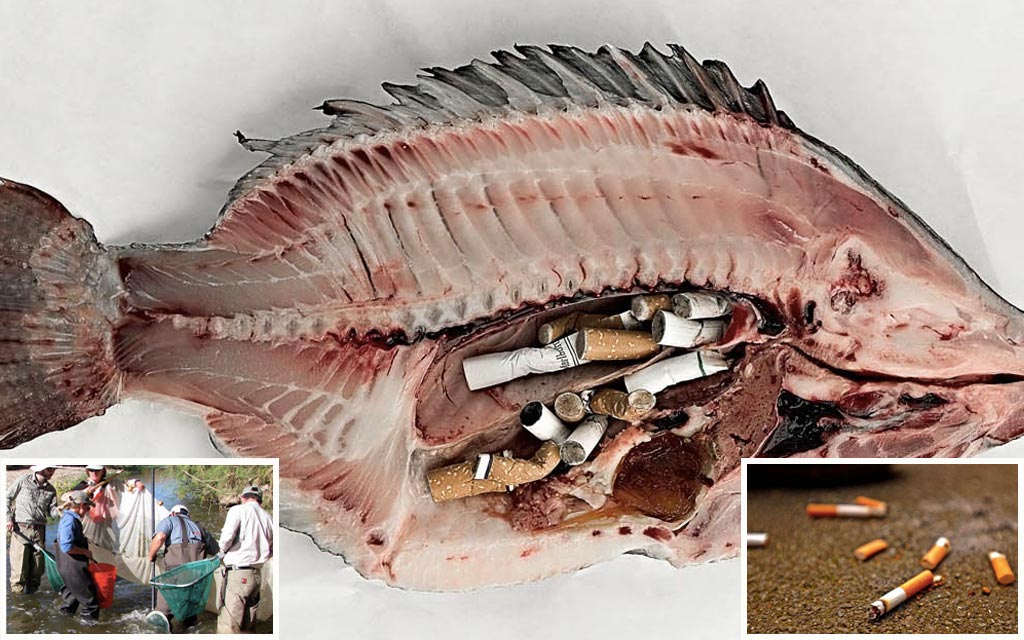
WENDELL HUSSEY | Cadet | Contact
As our natural environment changes around us, so do the plants and animals that also call this big spinning rock home.
While evolution often takes hundreds of generations to occur in nature, experts have recently revealed that our very own underwater life has begun adapting to the changing environment around them.
A new report by the Betoota Wildlife Conservation Foundation has this week uncovered that fish biologists are increasingly seeing native species incorporate never before consumed material into their diets.
The report found that fresh and saltwater fish have recently shown their ability to respond well to change, by adding used cigarette butts into their consumption habits.
“What we have found is that fish around regional centres and coastal outposts have been making the most of all the durry butts that get flicked on land and carried by wind and water, down our stormwater drains and into our creeks, rivers and oceans by tossers who don’t put ’em in a bin,” said lead researcher Maureen Biole-Gisse.
“They look like little insect larvae or bugs floating around in the water, and are imaginably very tasty looking for our little swimmer friends,” said the researcher about the 1.3 billion ciggies that are littered around NSW each year.
“Similar to the way turtles and dolphins love the idea of a generic jellyfish looking plastic bag.”
“And whales too, like that one that beached in France the other day with 16 kgs of plastic in its guts.”
“Anyway, husband’s actually had a lot of success angling with the butts as bait,” she laughed.
“He reckons he caught a 3 metre flatty down under the bridge the other day.”
While various fish species have taken to the butts like they do to water, it’s believed that the new additions to their diet may have some negative side effects.
“Oh yeah, they die from eating them,” said Biole-Gisse.
“Like pretty quickly too haha”
“Cause it full destroys their digestive system and stuff so they just fill up with the remnants of someone’s flicked dart and cark it.”
“Although it only takes a second to flick them, ciggies take 10 years to break apart after they’re littered and it’s estimated that plastic will outweigh fish by 2050, so fish ain’t hanging on for that long.”
“It’s like an accelerated human version of eating fast food every day”
“Anyway, so I guess the message is not to just litter your darts wherever is most convenient and maybe just chuck em in the bin so the fishies don’t gobble ’em up.”
“Pretty simple stuff really.”










